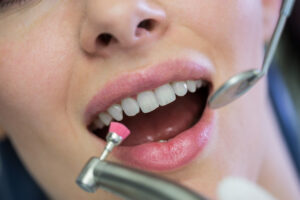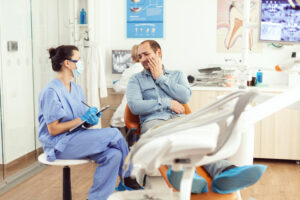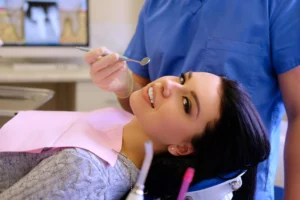A dental emergency can be a stressful and painful experience. Whether you’ve broken a tooth, suffered from toothaches, or any other dental issue that requires immediate attention, you’re likely to need aftercare once the problem has been fixed.
This aftercare will ensure you enjoy a smooth recovery and maintain your oral health to avoid a repeat issue. To support your recovery, we’ve compiled some self-care tips to follow after emergency dental work.
Follow Instructions
After receiving emergency dental treatment, your dentist will provide you with specific instructions for your recovery. These instructions may include dietary restrictions, medication usage, and how to care for the treated area. It’s important to follow these guidelines closely to promote healing and avoid complications.
Pain and discomfort are common after dental emergencies, so your dentist might prescribe pain medication or recommend over-the-counter pain relievers. Ensure you take these medications as directed. Additionally, you can use ice packs on the outside of your mouth to reduce swelling and numb the area. Be cautious not to apply ice directly to the skin to avoid frostbite.
Maintain Good Oral Hygiene
No matter what the dental emergency is, it’s essential to maintain good oral hygiene. In the days and weeks post-procedure, brush your teeth and tongue gently using a soft-bristle toothbrush, taking care not to disturb the treated area. Rinse your mouth with warm saltwater to promote healing and reduce the risk of infection.
Keep Hydrated and Stick to Soft Foods
In the days following a dental emergency, it’s essential to stay hydrated. You should drink plenty of water but avoid using straws, as the fast sucking motion can disrupt the healing process. Stick to a soft diet that doesn’t require excessive chewing to prevent irritation or damage to the site of the procedure. Examples of soft foods include soups, yogurt, mashed potatoes, and smoothies.
Monitor Swelling
Swelling is common after dental procedures. To reduce swelling, keep your head elevated while sleeping and avoid strenuous physical activity for a few days. Over-the-counter anti-inflammatory medications may also help, but consult your dentist or healthcare provider before using them.
Avoid Smoking and Alcohol
Smoking and alcohol can hinder the healing process and increase the risk of complications. It’s best to avoid these substances during your recovery period. If you’re a smoker, consider using this as an opportunity to start reducing or quitting altogether for the benefit of your oral and overall health.
Rest and Allow Time for Healing
Recovery after a dental emergency takes time. It’s important to rest and give your body the opportunity to heal properly. Avoid excessive physical activity and stressful situations that may slow down the healing process. Strenuous physical activity can promote blood flow which could burst the procedure sight, while contact sports can certainly risk damaging the affected area.
Stay in Touch with the Dentist
Many dental emergencies require follow-up appointments to monitor your progress and ensure everything is healing as expected. Make sure to attend these appointments as scheduled to address any concerns or complications promptly.
If you experience unexpected pain, swelling, bleeding, or other unusual symptoms during your recovery, don’t hesitate to contact your dentist. Open and clear communication with your dentist is essential for your well-being.
Focus on Stress Reduction
Dealing with a dental emergency can be emotionally taxing. Practice stress-reduction techniques such as deep breathing, meditation, or yoga to help manage anxiety and promote overall well-being during your recovery.
Self-care is crucial after a dental emergency to ensure a smooth and successful recovery. By following your dentist’s instructions, managing pain, maintaining good oral hygiene, and taking care of your overall health, you can minimise discomfort and complications.
For more information, always contact Finkelstein Dentist. We know how urgent dental emergencies can be, so contact us immediately on 02 9262 7778.
We can assess your issue over the phone and arrange for a priority consultation depending on your situation. We’ll treat almost all issues on-site, addressing the short-term pain while also considering your long-term oral health.
Image Credit: Yurii Sliusar





